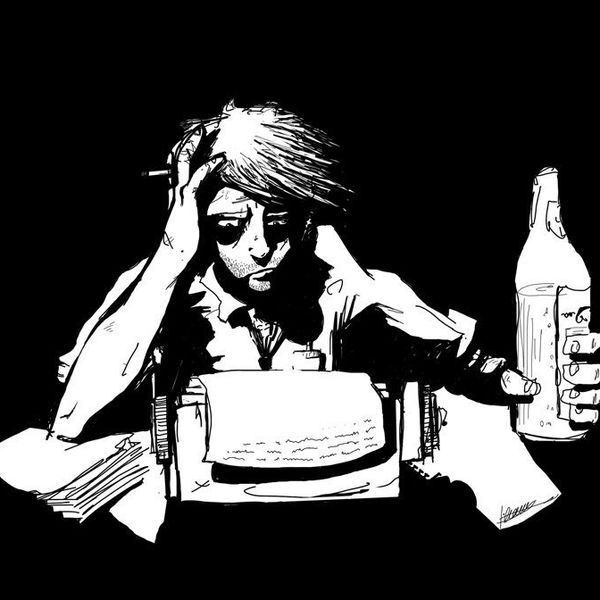With all the assignments and tests at school and having to balance sports, music, work, family, and relationships, taking time to write each day might seem impractical. Personally, I have lost touch with writing. Not that I used to write everyday for three hours, but I have not regularly written in a very long time. The (somewhat unexpected) arrival of NaNoWriMo has, in fact, reminded me sharply of how negligent I have been with writing in recent months. However, the first step to this process of rediscovering (or discovering for the first time!) a love for writing is acceptance that writing is important to you and that you have not been prioritizing it as much as you should. If you are someone who wonders why writing is worthwhile at all, try it out for a few days and see how it feels. With that in mind, here are a few ways to rejuvenate your writer's soul.
1. Set achievable goals.

2. Find a source for interesting writing prompts.
This can be Reddit, or another website, or that book your mother gave to you a while ago and you forgot about. Maybe even have a list of prompts you like printed on your desk, so you always have some on hand and you can immediately get to work instead of having to look for a new prompt. However, some people don't work well with writing prompts - feel free to experiment with writing to music and other inspirations, which leads me to the next point...
3. Experiment to understand what best helps bring your writing muse out of hiding.
As I had mentioned, you should aim to experiment with different ways to be inspired to write. Some things that have helped me are writing to music (and with this, branch out from things you usually listen to!) and writing based off a novel or another story. You can draw upon themes or characters another author has created already as vehicles for your own ideas. Another aspect you can experiment with is writing in different atmospheres - some like cafés, some like a grassy meadow, and some like the comfort of their own bed. Whatever floats your writing boat, as the saying goes.
4. Realize that everything you write doesn't need to be perfect, or even completely original.

5. Set time aside every day to write.
Even fifteen minutes makes a huge difference - it allows writing to be a part of your life, as opposed to something you do only when inspiration hits you out of nowhere once per year. Even if you don't feel particularly inspired or excited about writing, being able to write every day will help your dedication to the art and the development to you own style and ideas. After all, think about professional writers and novelists - most write every day, even when the elusive "muse" is not around to guide them.
6. Have fun!

























